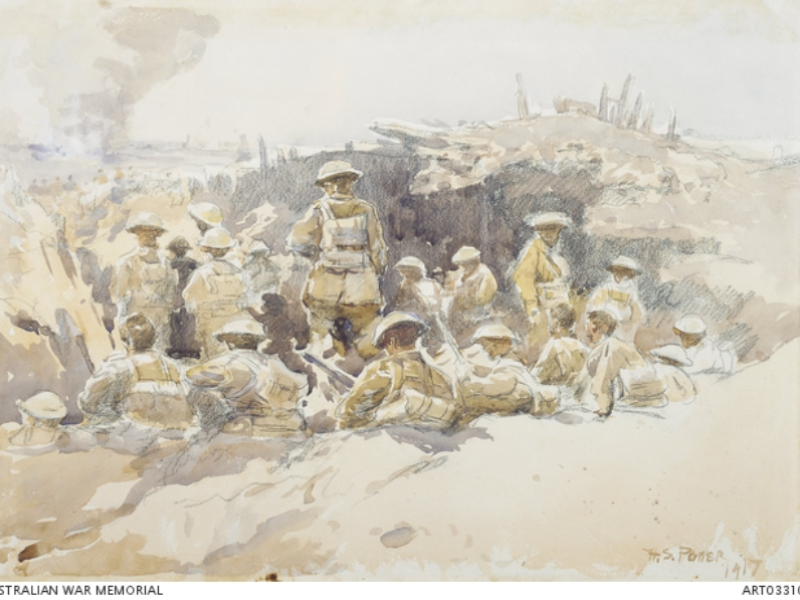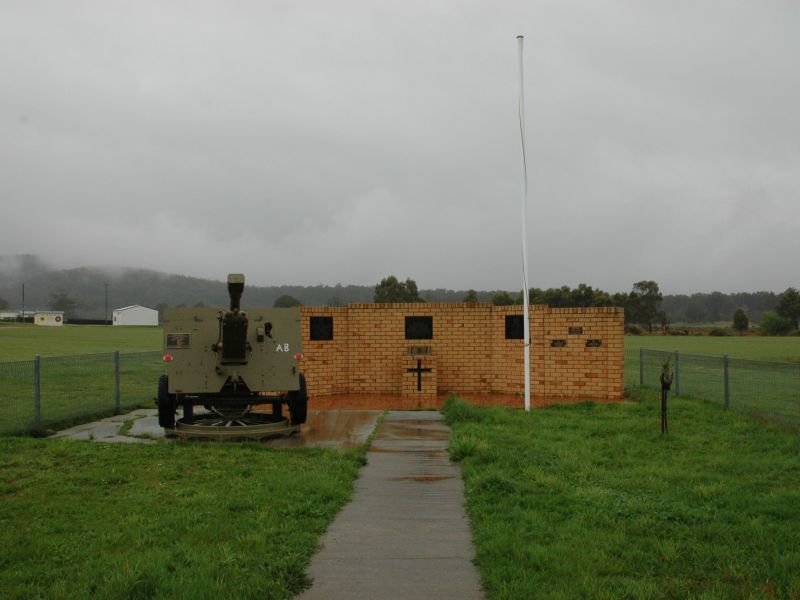Sergeant Horace Stewart Winburn, 40th Battalion
Horace Winburn was born on 19 September 1896, the third son of Frederick and Mary Winburn of Mathinna in Tasmania. Horace may have been raised from a young age by his grandmother, Elizabeth Atwater. He grew up in the Longford district, where he attended the local state school.
Horace’s mother died in 1903, when he was seven years old, and his father when he was 17. Horace went on to Phillip Smith Training College in Hobart, and became a school teacher at the East Launceston Practising School.
Winburn enlisted in the Australian Imperial Force in October 1915. In early 1916, he was posted to the newly-raised 40th Battalion, and underwent a period of training in Australia. The 40th Battalion left for active service overseas in July 1916, when Winburn and his comrades sailed for England on the troopship Berrima.
Winburn reached the battlefields of the Western Front in November 1916, joining the rest of the 40th Battalion as it rotated in and out of the front line during the bitterly cold winter. He proved an able soldier and was regularly promoted.
His health suffered in the cold, and he was hospitalised once in February with illness, and in March with a septic foot, probably a result of trench foot. After treatment, he rejoined his battalion in late March 1917.
On 12 May 1917, the 40th Battalion was holding the front line near the Belgian town of Ploegsteert. At some point during the day, Winburn was wounded, probably during the regular German artillery bombardments that hit the battalion’s sector of the line. But he managed to remain on duty, and less than a month later, was promoted to sergeant.
The day after this promotion, Winburn was in the battle of Messines. His family later reported in the newspapers that Winburn was mentioned in despatches for his “gallant conduct and conspicuously good work during the Messines offensive.”
On 12 October 1917, the 40th Battalion took part in an operation to capture the Belgian town of Passchendaele. The men moved into position through heavy mud and attacked under fire. Though ground was captured, it could not be held.
On the evening of 13 October, the order to retire was finally received, and Sergeant Winburn went forward to pass the word along. As he did so, a shell exploded nearby.
Private Gardner later reported that he saw Winburn wounded in the shoulder. Winburn was conscious, and said, “I’m hit, and do not feel good.” That was the last report received of him.
Initially declared missing, Horace Winburn was soon acknowledged to have been killed during the attack on Passchendaele. His body was never recovered, and today he is commemorated on the Menin Gate Memorial to the Missing in Ypres.
He had just turned 21 years old.
Horace's two brothers also enlisted. They both survived the war and returned to Australia. Private (Pte) Frederick George Winburn, also of 40th Battalion (Bn), returned 15 February 1918; and Pte Wilfred Percy Winburn, 12th Bn, returned 19 April 1919.
Meleah Hampton, Historian, Military History Section
- Australian War Memorial https://www.awm.gov.au/collection/AWM2021.1.1.38

 Australian War Memorial
Australian War Memorial